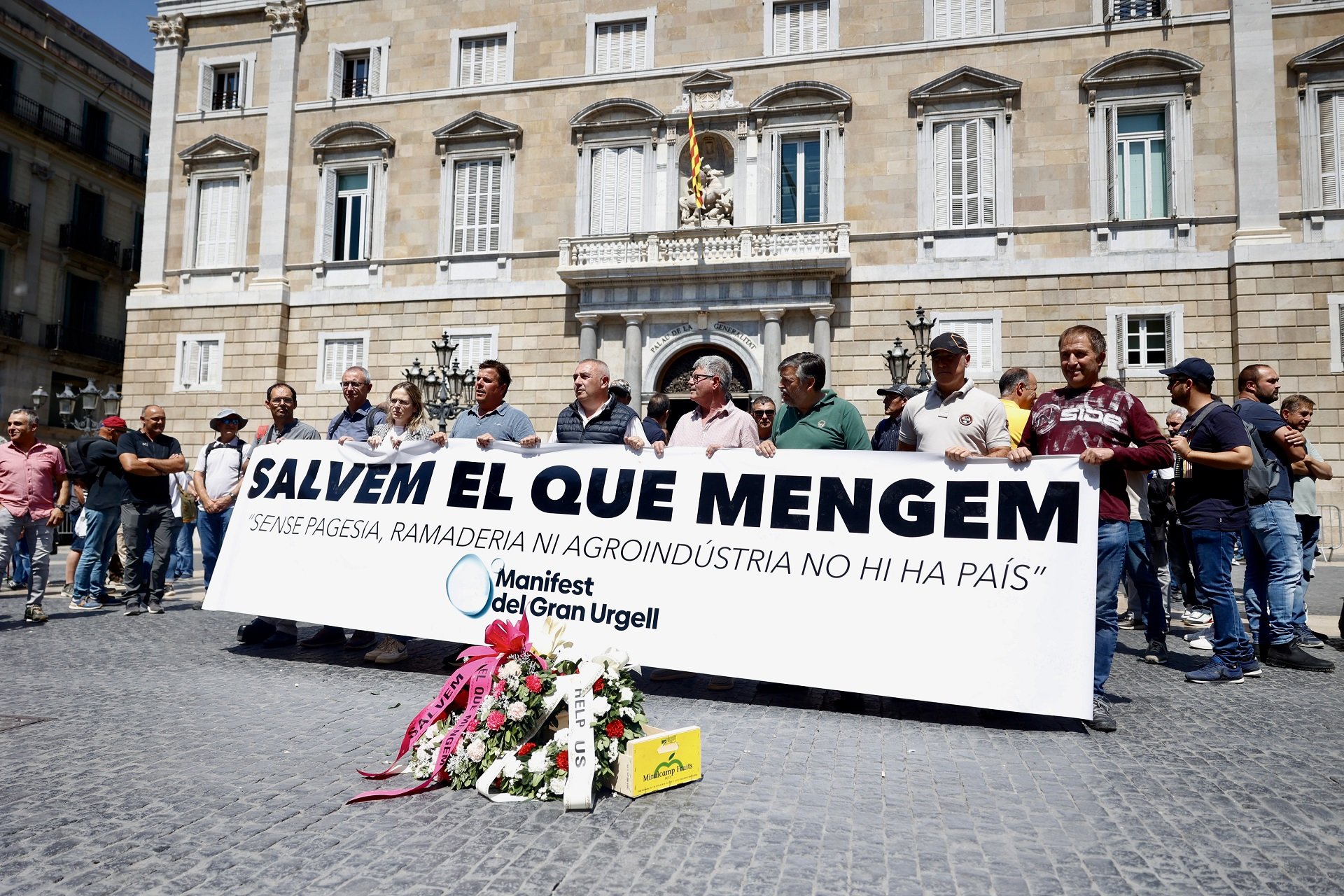"Let's save what we eat", read the banner at the front of the march. The urban protest by Lleida farmers this Wednesday in Barcelona, demanding more investment from the Catalan government to address the negative consequences of the drought, has managed to incite a timid commitment from the Pere Aragonès executive. Farmers' representatives entered the Palau de la Generalitat and spoked with Aragonès himself and the Catalan climate action minister, Teresa Jordà. One of the main demands of the sector has been, for some time, the delivery of more resources and concrete investments by the Generalitat. Yet once again this Wednesday, no specific figure was forthcoming.
In fact, the minister appeared before the media and explained that the Catalan government's commitment after the meeting and the protests is to carry out appraisals of the fruit trees in the face of the possible loss of the harvest "to find out and give some peace of mind " to farmers affected by the closure of two key irrigation facilities in western Catalonia, the Urgell and Segarra-Garrigues canals. The commitment expressed today is an extension of what had already been stated two weeks ago in another meeting in Lleida. In that meeting, the farmers also demanded the specifics of the investments which the government has yet to put on the table. At the moment, the administration says it is committed to monitoring and evaluation.
These statements, according to the Europa Press agency, were made by Jordà after the meeting held with representatives of the Manifest del Gran Urgell protest platform, the collective that called the protest that passed through the centre of Barcelona this Wednesday. According to Jordà, expert inspection will be used to find out the amount of fruit that the affected farms could currently produce and assured that these assessments are "key" to being able to give a future response to the sector. In this regard, the minister also asked the Spanish agriculture ministry and the European Union to work together in this situation because, according to her, "there is no territory without farmers".

Demonstration and meetings with government representatives
The farmers' demonstration started at mid-morning from Plaça de Sant Jaume where about 200 people gathered, according to city police estimates. The demonstrators marched to the Catalonia delegation of the Spanish government, located in the Eixample district where they met with the new delegate, Carlos Prieto, and ended up in front of the nearby headquarters of the European Commission at around 2:50pm. The spokesperson for the Manifesto del Gran Urgell platform, Jaume Perera, welcomed the fact that the institutions are listening and said that he is confident that they will help the farmers, but he issued a reminder that the measures must be applied urgently in order to reassure the sector.
Perera made a call for people in all areas to "work as a society and country to find a joint solution" to the drought in Catalonia, and said that he hopes the protest will serve to raise awareness in society about the lack of water. The platform he represents predicts losses of up to 1.3 billion euros in the sector in the worst-case scenario and warned that many companies "will have to reduce their workforce by 70-80%" if the situation does not improve. The platform has asked representatives of the Generalitat and the Spanish government to participate in a meeting with European institutions that will be held on May 31st. Although this week has been the wettest of the year so far in parts of Catalonia, the rain that has fallen is not sufficient to do anything more than buy a little more time with the driest and hottest months of the year set to arrive.

